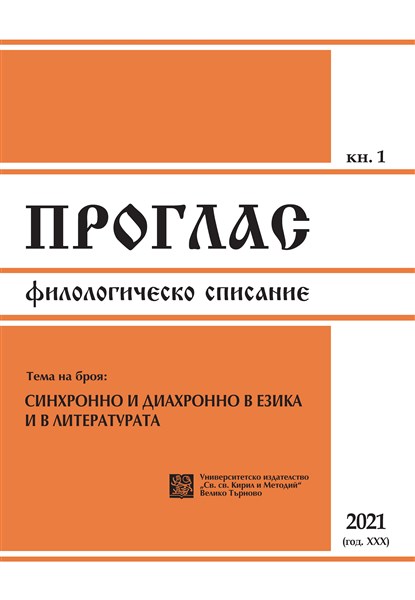
We kindly inform you that, as long as the subject affiliation of our 300.000+ articles is in progress, you might get unsufficient or no results on your third level or second level search. In this case, please broaden your search criteria.

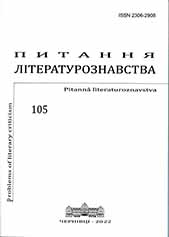
The article examines the problem of “internal emigration” in German literature and its connection with “German magical realism”, highlights the history of the origin and study of the term and trends in its interpretation in different historical periods from the mid-forties to modern times. The paper notes that most works of “magical realism” were unfairly on the periphery of the literary process because they were written during Hitler’s dictatorship. The author of the article states a certain categorical disparity in the definition and classification of works of “magical realism”, when not formal and aesthetic features are considered, but political and historical criteria. The rhetoric of the “Great Discussion” not only actualized, but also strengthened the pejorative nature of the phrase “internal emigration”. The controversy over the definition of the concept and its conceptual content has led to the fact that “internal emigration” was perceived as a manifestation of adaptation, self-justification and unwillingness to admit guilt. The semantics of the term, however, is changing along with scholars’ efforts to shed light on this controversial discourse. The writers’s being in “internal emigration” not only removes the question of the legitimacy of their work, but also opens a new layer for scientific research, in particular, study of the use of techniques of covert writing and means of expression of alienation. The works of German magical realism with the characteristic expansion of reality in their genre through the creation of unreal dimensions can be considered as a certain expression of internal exile. The metaphorical nature of the texts can be seen as a manifestation of introspective self-immersion of the authors, an expression of their separation from the political system and solitude in the inner world. The author of the article suggests that there is a certain coherence between German magical realism and the phenomenon of “internal emigration”. Hermeneutic analysis of the works of the authors of “internal emigration”, representatives of German “magical realism” must include a study of the historical context and autobiography of the writer.
More...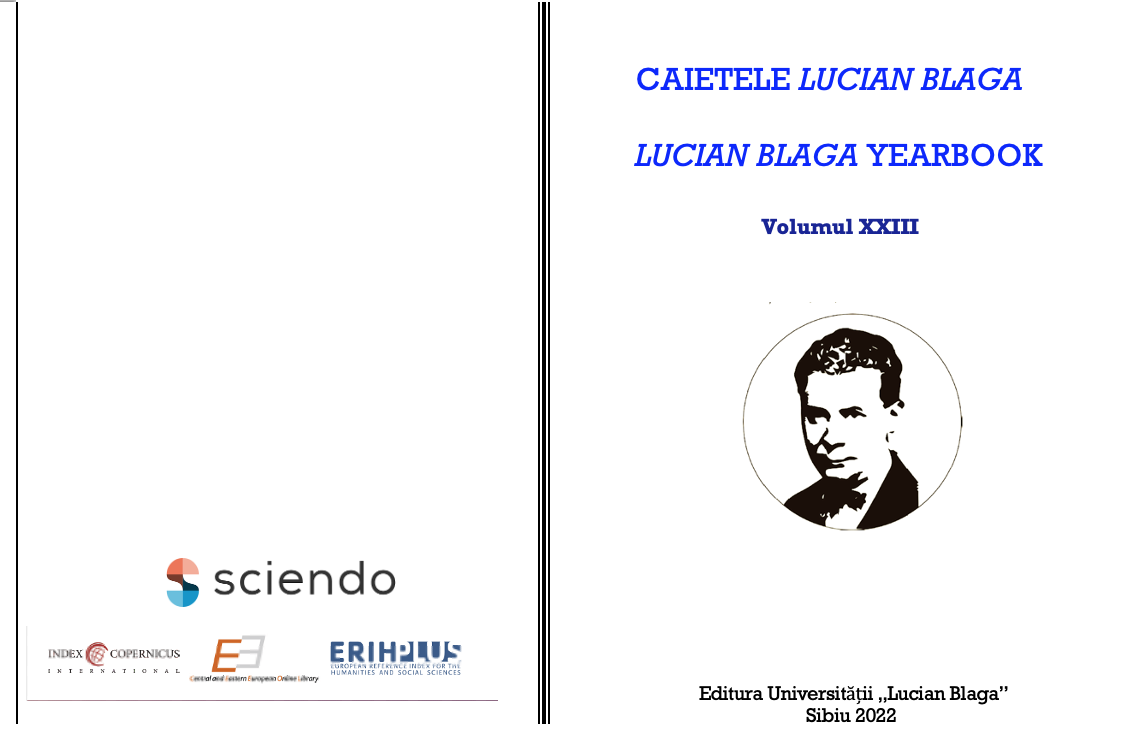
The present paper focuses on the ailments of modern man, whether we consider the physiological aspect, or whether we refer to the metaphorical, ontological dimension, and performs a comparative analysis between the work of M. Blecher and the novel The Enchanted Mountain by Thomas Mann. Illness - the overarching theme of the novels - receives numerous valences, from the most noble to the most detestable, but what remains common to these texts advanced for analysis is the existential crisis, the inner void that the characters experience acutely. The universe that both the Romanian and the German author create is permeated by the specter of death, which, without being tragically experienced, rather gives off a strange fascination, and ends up creeping into the thoughts, habits and belongings of the characters, becoming a kind of obsession that convulsively controls everyone, but which they paradoxically ignore, with just as much indifference. On a macro level, the smoldering malaise can be assimilated on the level of all mankind, as if foreshadowing the dire fate of humanity in the upcoming period.
More...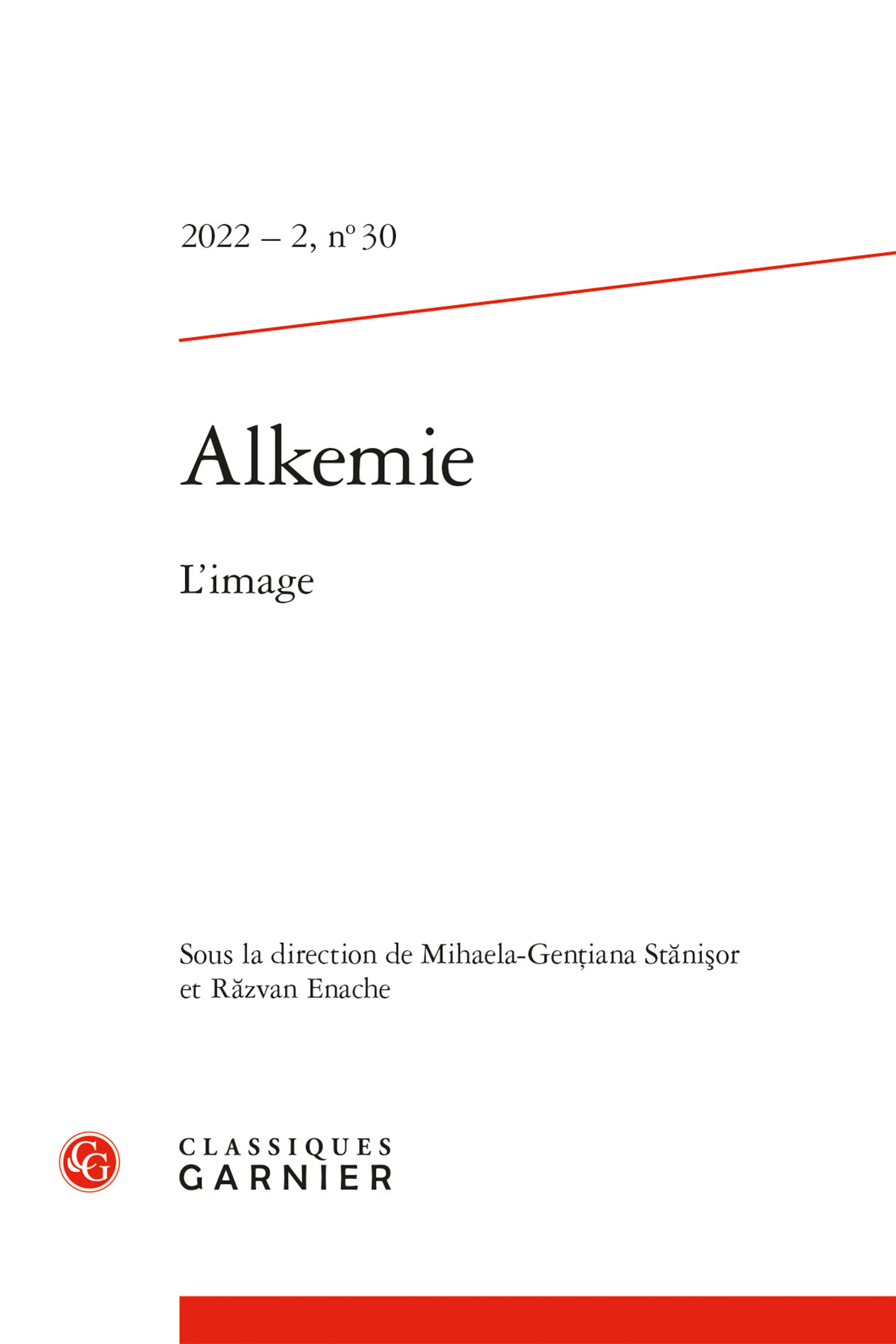
The book of Simon Lemoine, Aux limites de la résistance, is compared to the work of Robert Walser, as two attempts (social and existential) at a post-Hegelian interpretation of the voluntary servitude in contemporary society.
More...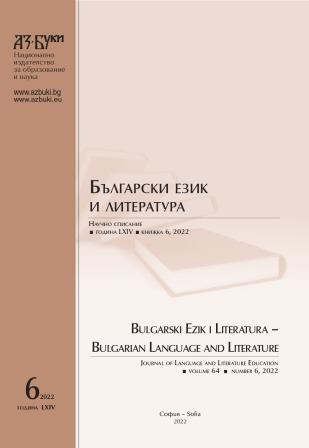
The following paper examines the elaboration of the concept of uncanny between literature and psychoanalysis. In shaping the concept, both ErnstJentsch in “On the Psychology of the Uncanny” (1906) and Sigmund Freud in “The Uncanny” (1919) carefully read Hoffmann's fantastic stories of automata. While Freud develops his theory of the uncanny (concerning the automatism of unconscious repetition) by reading “The Sandman”, Jentsch dwells on “Automata” in his approach on intellectual uncertainty. In this paper I also discuss anthropomorphic machines and the idea of uncanny valley in robotics, concluding that the notion of uncanny always involves negative anagnorisis, or misrecognition between inside/outside; human/automaton; animate/inanimate.
More...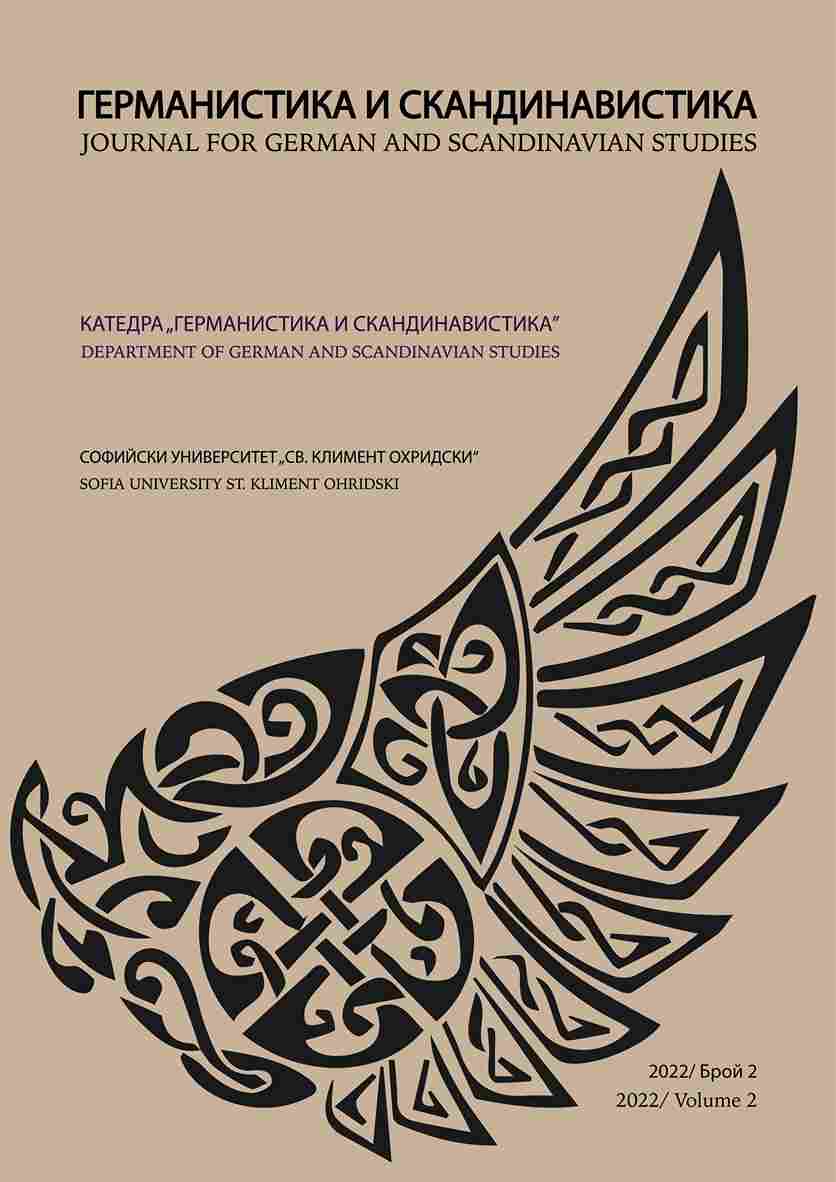
This article focuses on the acoustic similarities between two cultural salons, which have become active participants and main characters in two novels, written far apart from one another in time – “War and Peace” by Leo Tolstoy and “The Man Without Qualities” by Robert Musil. The similarity between the two salons runs parallel in terms of their specific “sounding”, determined by onomatopoeic representation. The salon of Diotima in Musil’s novel is associated with a henhouse where all conversations about war and peace are just cackling and clucking. As Tolstoy never completely accepted the progress of bourgeois civilization, the salon transparently and explicitly gets allegorical sense of “spinning workshop” whose “products” are vanity, intrigue and bustle. The onomatopoeic representation of the two salons is loaded with deep irony, as well as parodic motivation, leading to the sceptic conclusion that peace cannot be achieved by the spiritual endeavors of cultural communication.
More...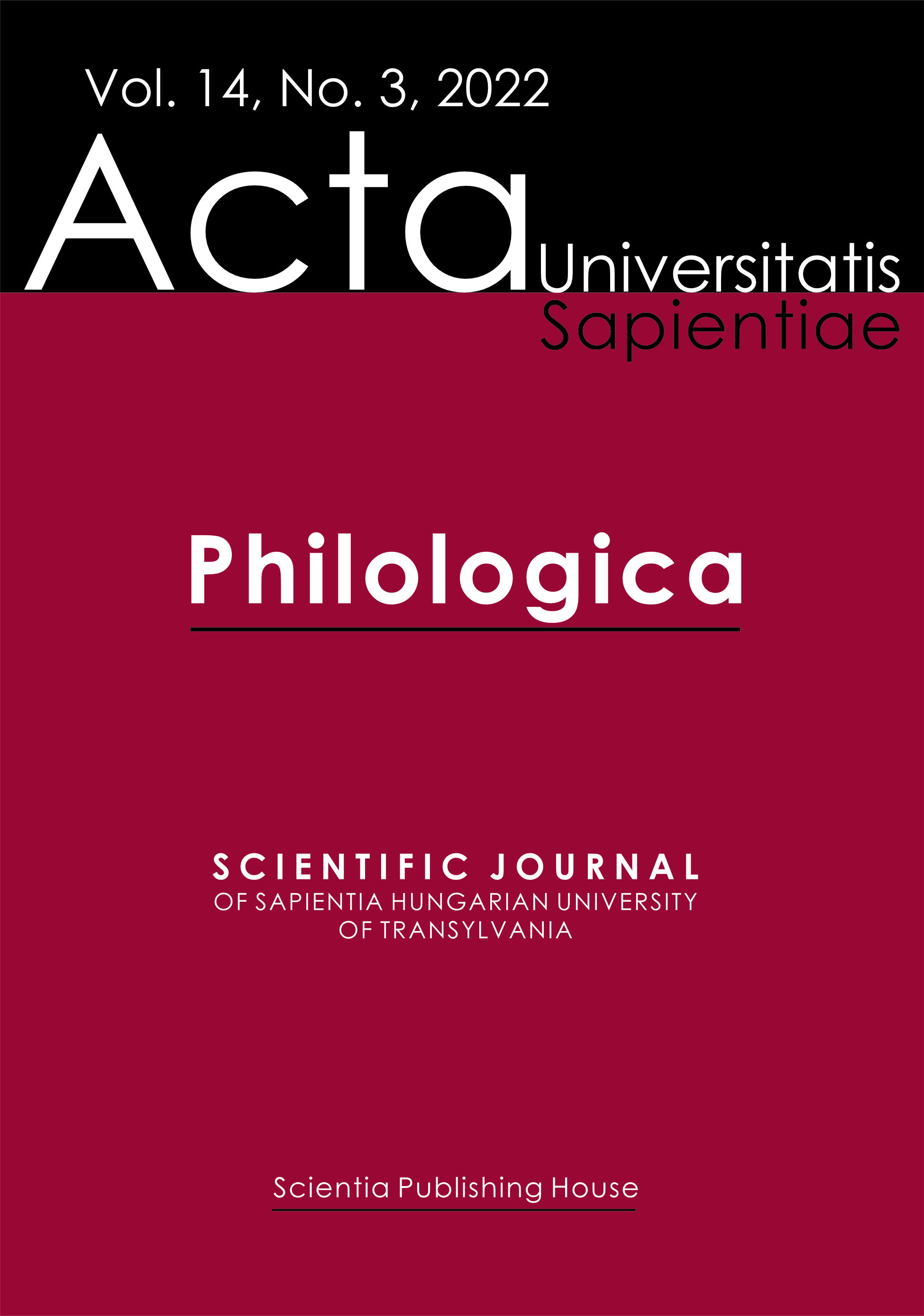
Christa Wolf was born in 1929 in a country that shortly thereafter had to end its existence. The famous German writer then studied, lived, and wrote in another system, which in turn was dissolved after decades. Such events have a dramatic effect on the life of an individual. The paper attempts to identify some features related to writing and identity in Wolf’s novel Nachdenken über Christa T (Reflections on Christa T.). In her texts, the author writes about her characters who encounter existential contradictions: on the one hand, there is a totalitarian system in which human beings have to survive; on the other hand, there is Wolf’s protagonist who tries to locate his or her individuality and thus create an ethic of his/her life. Christa Wolf’s analysis of identity is focused on the attempt to be authentic in a milieu that gives her few opportunities for development. Wolf’s writing describes our world. The texts written in the 60s, 70s, and 80s are still full of relevance today. By reading Christa Wolf, we discover a system full of violence, where the individual develops strategies for survival. The author suggests an existential recipe: through critical questioning and through a meticulous analysis of our own self, we are able to find a solution for ourselves and for others.
More...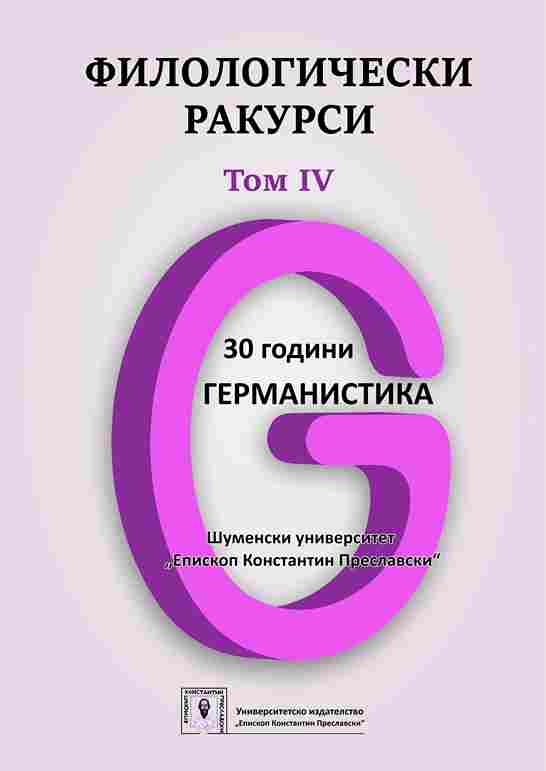
This article discusses war in the context of otherness in the short military stories by the German writer Wolfgang Borchert and the Bulgarian author Yordan Valchev. Different Perspectives of the attitude towards the social phenomenon of war, fictionally recreated in both authors' stories, are analyzed. The ways of interpretation of specific problems are compared. The article points out similarities, differences and developments in certain aspects in the military stories written by both authors.
More...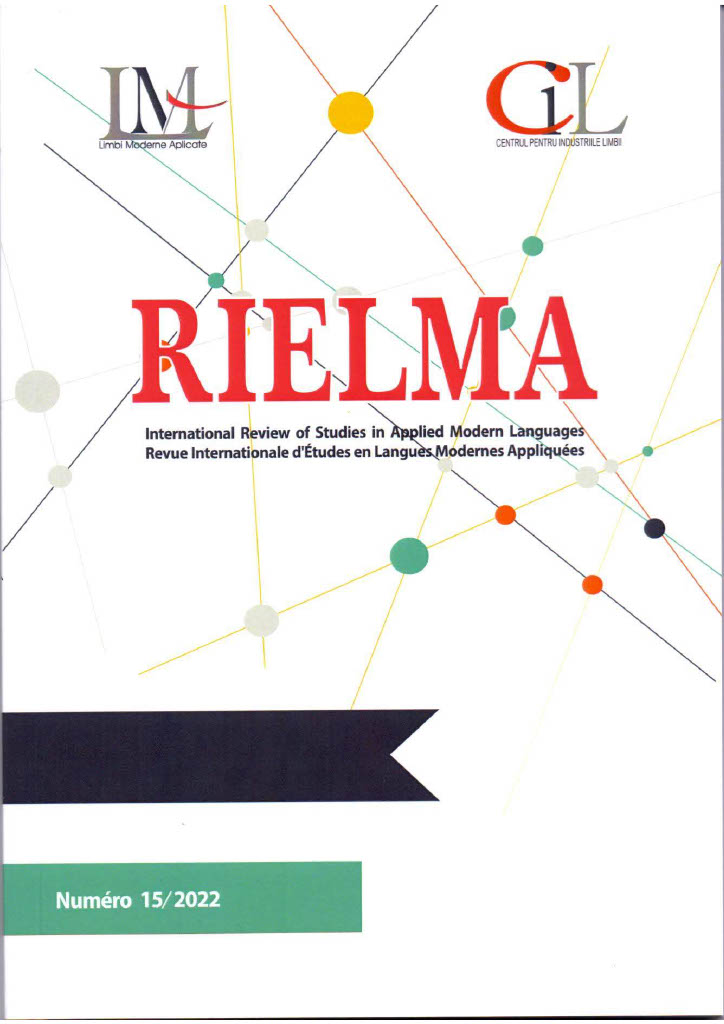
Herta Müller’s characters are always located on the border between the Romanian and the German language and culture. The identity of the protagonists is also formed at the verge of this border. Müller uses many words and phrases from the Romanian language in her metaphors, translates them into German and incorporates them into her poetic language. The paper discusses Lola’s character from the novel Herztier. The analysis deals with the linguistic and cultural imprint of Lola’s character, as well as with the problem of the perpetrator-victim dichotomy, an aspect that determines all of Müller’s female characters. Lola is not an agent but a borderline figure in the novel. Her figure is located on the border between the rural and urban space, between Romanian and German language and culture, and between being a victim and being an accomplice.
More...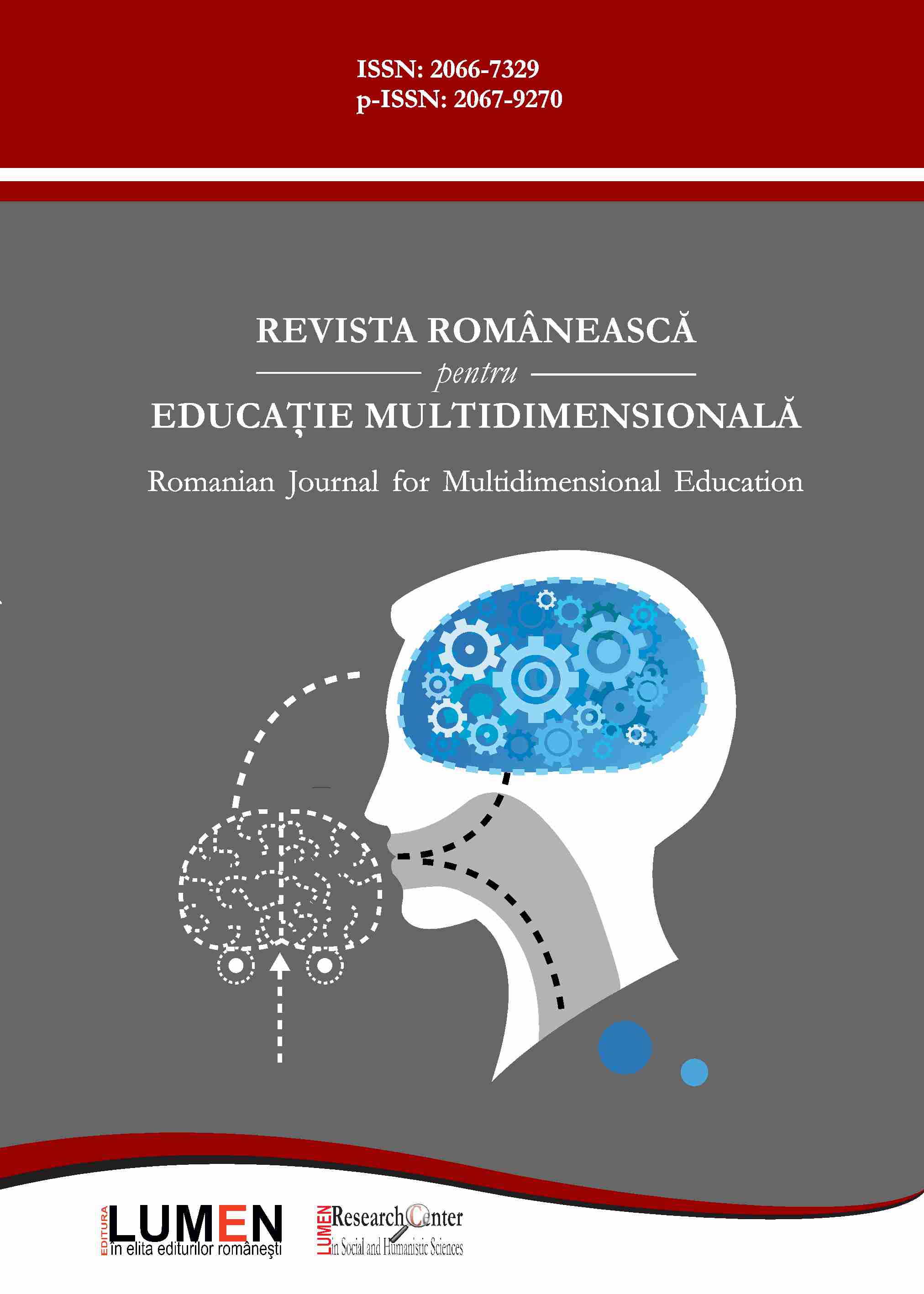
The relevance to study the representations of ageing is conditioned by the necessity to understand the variety between generations, differences in age psychological attitudes and increased life expectancy, in particular in European countries. All this is reflected in fiction. The aim of this work is to outline the main features of artistic representations (indirect, «secondary» prototypes and images) of ageing (old age) in German-language literature of Germany, Austria and Switzerland, especially during modernism, postmodernism and the formation of modern society. The twentieth century in the literature is characterized by the development of such directions as modernism and postmodernism. The last one was originated as an ideological signpost associated with a certain unity of philosophical, theoretical, and methodological approaches. The concept of a human in these theories was marked by skepticism on the world caused by The First and The Second World Wars, sarcasm, irony, despair and hopelessness about the absurdity of the world. In the hieratic works of the twentieth-century German-language literature, representations of old age and gerontological motives were very rarely central. Therefore, in social, physical and psychological dimensions, the ageing process has become richer over time. Artistic representations of the elderly were mostly stereotyped. Since the early twentieth century the problem of depicting the elderly has acquired existential sense, postmodern view on human life, the search for human sense of life, human loneliness in society, the role of an individual in the periods before, during and after the two World Wars.
More...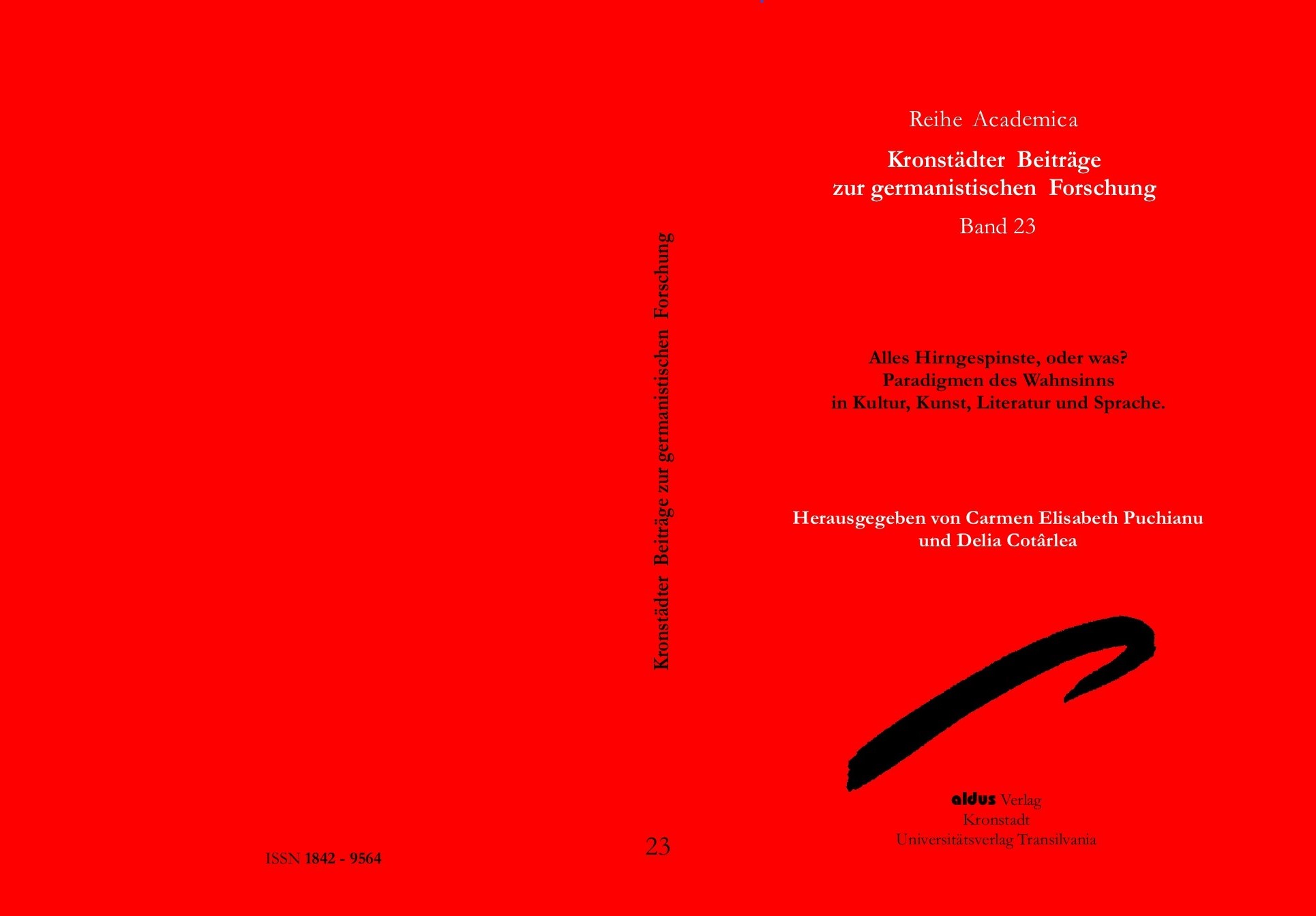
Enttäuscht von seinem vergeblichen Bemühen durch seine Theaterstücke Einfluss auf die Gesellschaft zu nehmen, kehrte Kipphardt in seiner letzten Schaffensphase zu seiner Faszination von der Psychiatrie zurück, die ihn in seiner Jugend dazu bewogen hatte, Medizin zu studieren.1966 zeigt sich Kipphardt tief beeindruckt von Gedichten des schizophrenen Patienten Ernst Herbeck, die der österreichische Psychiater Leo Navratil in seinem Buch Schizophrenie und Sprache veröffentlicht hat. Ausgehend davon beginnt sich Kipphardt der März-Thematik zu widmen, die er in der Form des Films und auch in den drei literarischen Gattungen: Epik, Lyrik und Drama erkundet. Die erste Bearbeitung des Stoffes ist 1975 der Film Leben des schizophrenen Dichters Alexander März für das Zweite Deutsche Fernsehen (ZDF), ein Jahr später erscheint der Roman März, 1977 veröffentlicht Kipphardt weitere März-Gedichte in dem Lyrikband Angelsbrucker Notizen, die er aus der Perspektive des Schizophrenen heraus schreibt und 1980 wird das Schauspiel März, ein Künstlerleben uraufgeführt. Im vorliegenden Beitrag werden die verschiedenen, sich widersprechenden Perspektiven auf die Geisteskrankheit analysiert, die Kipphardt in seinem Roman März vorstellt. Die Perspektive des Patienten auf seine Krankheit, die Schizophrenie, wird ergänzt durch jene des Direktors der Anstalt, einem Verfechter der biologisch orientierten Psychiatrie und jener Dr. Koflers, der die Psychose als Folge einer gestörten Beziehung des Patienten zur gesellschaftlichen Umwelt betrachtet, aber auch durch die Sichtweise der Menschen außerhalb der Anstalt.
More...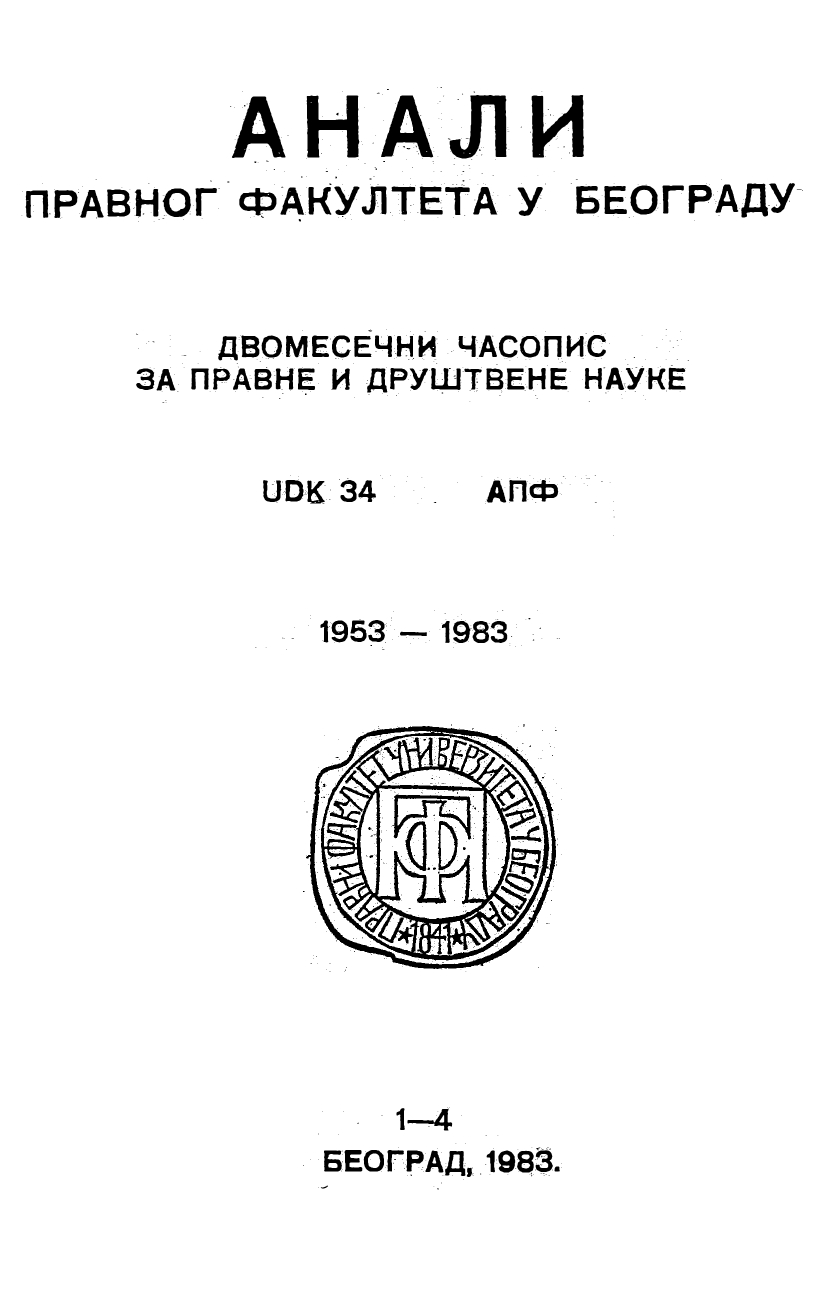
In Marx’s „Grundrisse der Kritik der politischen Oekonomie”, there are, besides prevelantly economical and philosophical discourse, also certain historical, and legal problems, and especially the question of the form of production and ownership over land in the pre-capitalist era. Laying emphasis on three such forms preceding capitalist production (as!atic, classical and german), Marx studied the classical type of production and ownership over land mainly on the basis of data on the Roman empire and law. This concept of his can be summarized in several main components, namely: that the classical type of production is characterised bu the concentration of permanent residence in the city-state, which is the basis of military organization; that the members of the community are engaged both as small farmers and soldiers; that as such they enjoyed equal rights; also, that the classical type of ownership over land is characterized by the fact that ownership over land was both state ownership and private ownership. In his work, the author, analysing the sources on the Greek state and law, published after Marx’s death, concludes that Marx’s concept of the classical form of production conforms to a considerable extent to the data on the oldest known history of Greek law. However, pointing out the non- -existence of individual private ownership over land in Greek, and especially Dorian, polises and connecting Marx’s concept of the classical form of ownership over land in the „Grundrisse’’ with the one set out in the „German Ideology”, the author is of the opinion that this dualism of form of ownership over land Marx atributed — that is, thought that it should be atributed — predominantly to the so-called secondary form of the classical type. Its main form would, at least according to Greek sources, be more characterised by collective ownership of the community, in other words, family ownership over land, accompanied by the lack of individual private ownership.
More...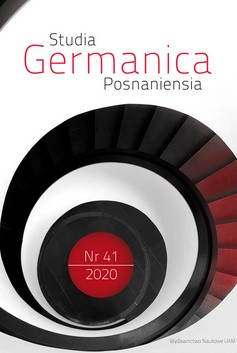
The increased momentum of feminist discourse revolving around female normativity was accompanied by a new perspective on masculinity and the ideals by which it is constructed. The thesis of the article is that this new orientation has been taken up in recent years, especially by so called quality TV series. Taking the series Babylon Berlin as an example, it is shown that televisual seriality approaches this social discourse with particular sensitivity and thereby allows the deconstruction of myths surrounding ideal masculinity. The interference between formal narrative structure and the transformation of gendered common knowledge – that is clearly pointed out in the analysis – qualifies the television series as an educational object for teaching German. Therefore, the essay ends with explicit suggestions for the use in the classroom with the purpose of negotiating social discourses through literary-aesthetic education and to enable a critical-operational reception.
More...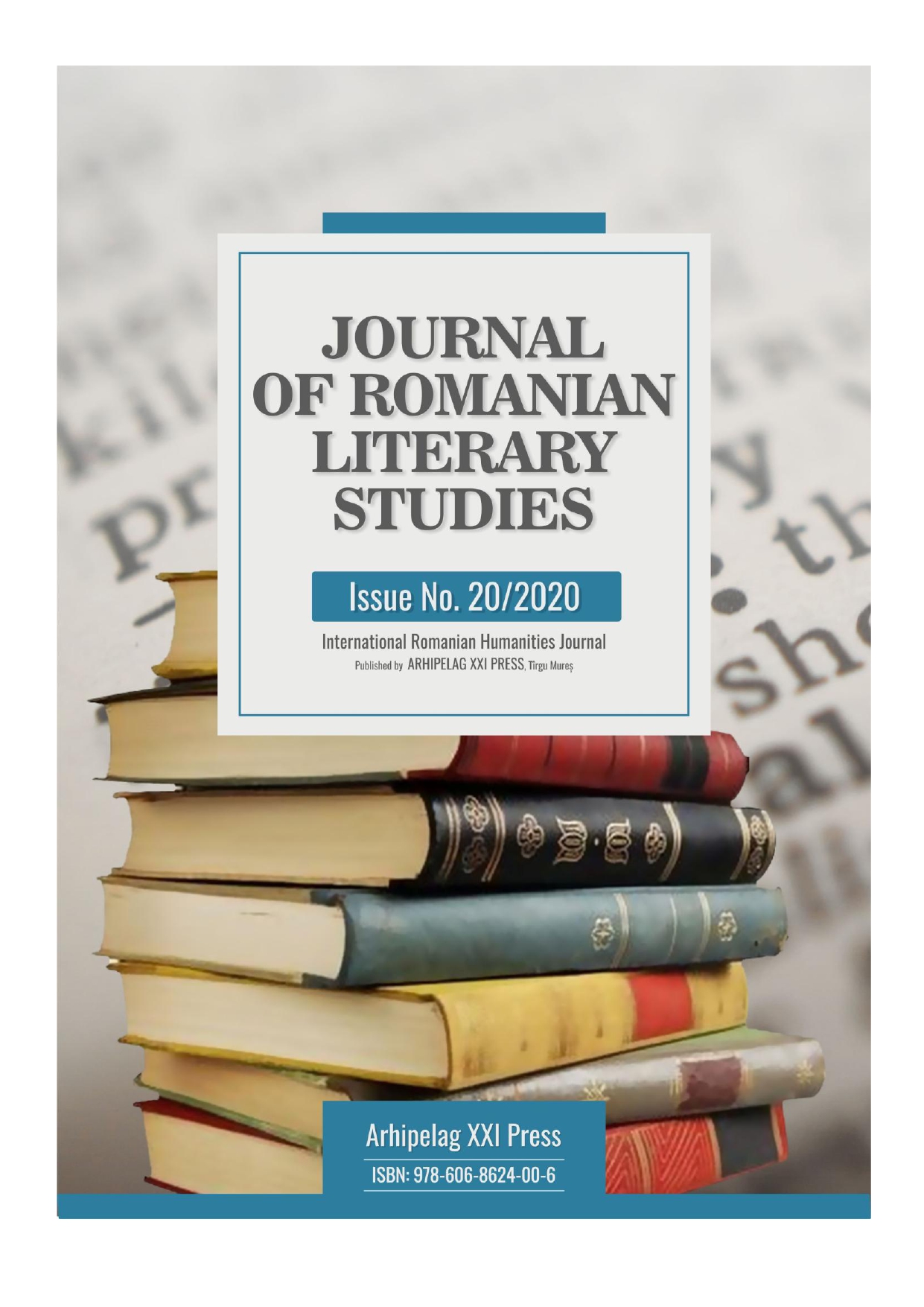
The ontological essence of the Faustian tragedy is the impossibility of being oneself without crossing out the general outline of ethics. This tragedy postulates both the being’s bidimensionality and the idea that God and Evil are two intertwined concepts, as Mephistopheles – the symbol of malignity in all its dimensions – acts as a moral trigger, in the sense that the bad consequences of his actions/words/proposals determine the salvation of Faust. Mephistopheles also obliges Faust to confront the limits of existence (physical, social, ethical). The knowledge – pleasure duality thus becomes the main feature of the Faustian character.
More...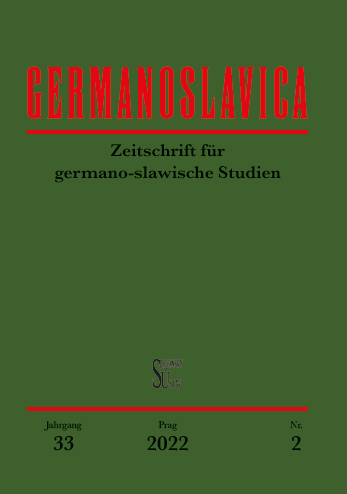
The 1960 German edition of Ferdydurke by Witold Gombrowicz (1904-1969) was the very beginning of the reception of Gombrowicz’s oeuvre in Germany. Together with the writings of Stanislaw I. Witkiewicz and Bruno Schulz, the German reception of Gombrowicz’s work largely affected how the entire Polish post-WWII literature has been discussed. Rudolf Richter (1894-1974) debuted with his translation of Ferdydurke in Germany. Richter’s further translation work has not only turned out to be prolific but also essential in creating the literary Polish Wave in Germany. The article is based on the hitherto unknown sources from the estates of Gombrowicz, Richter and the German editor Günther Neske. It presents the contexts of how the translation and publication of Ferdydurke came about.
More...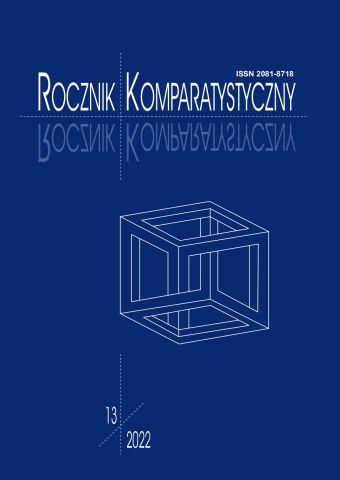
The article presents the issues related to the philosophy of law that can be found directly or indirectly in the novel by B. Schlinek entitled The Reader. The article is problematic in nature, and the reason for interpreting the novel from a philosophical and legal perspective was the fact that the author claims that writing is for him “the second life”. In the first place, he considers himself a lawyer, a constitutionalist. The first problem concerns the situation of the accused in court and establishing the facts and narration(s), which in itself is an interesting issue for legal scholars – it concerns getting to know the facts in the process of applying the law. The second problem concerns the settlement of crimes committed by the totalitarian regime. In turn, the third problem is related to the broad sense of the punishment, the issue of the perpetrator’s identity and changing circumstances of action – changes taking place in the social system in which the perpetrator functions, as well as his own personality. So what is responsibility?
More...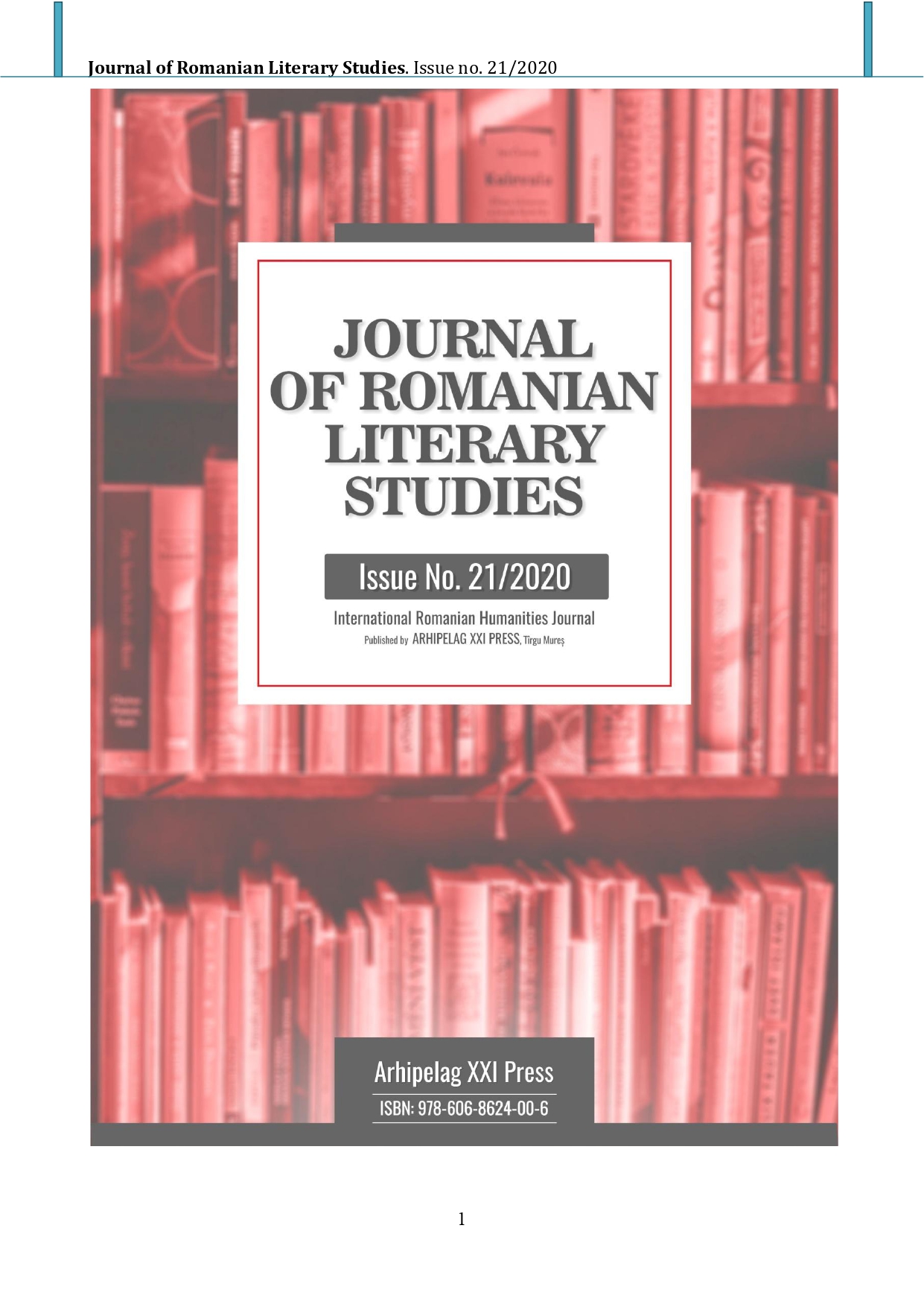
The works of Stefan George reflect the influence of the French Symbolism in Germany, creating a new form in German lyrics. Born on the 12th of July 1868 in the village of Büdesheim, near the town of Bingen on the Rhine, where now a memorial museum is open for the public, George was a controversial poet and translator. Since he was a teenager, he started writing mainly poems and fragments of dramas, also being preoccupied with translating. While living in France, he visited the circle of Mallarmé, attending his famous Tuesday meetings, and personally met Verlaine, declaring that Paris was a place “where one was enthusiastic about poetry”. When he returned to Germany, he started translating from the works of Baudelaire and Mallarmé, which had an important influence on his own creations. With the Blätter für die Kunst literary magazine, issued in 1892, George marked the beginning of the reaction against Naturalism, imposing new aesthetic forms in German literary language. The most important symbolist themes and motifs to be found in his poetry are: the nature, autumn, death, the use of colours (white, yellow, grey), the description of strong fragrances and also of the city, the gardens or the park.
More...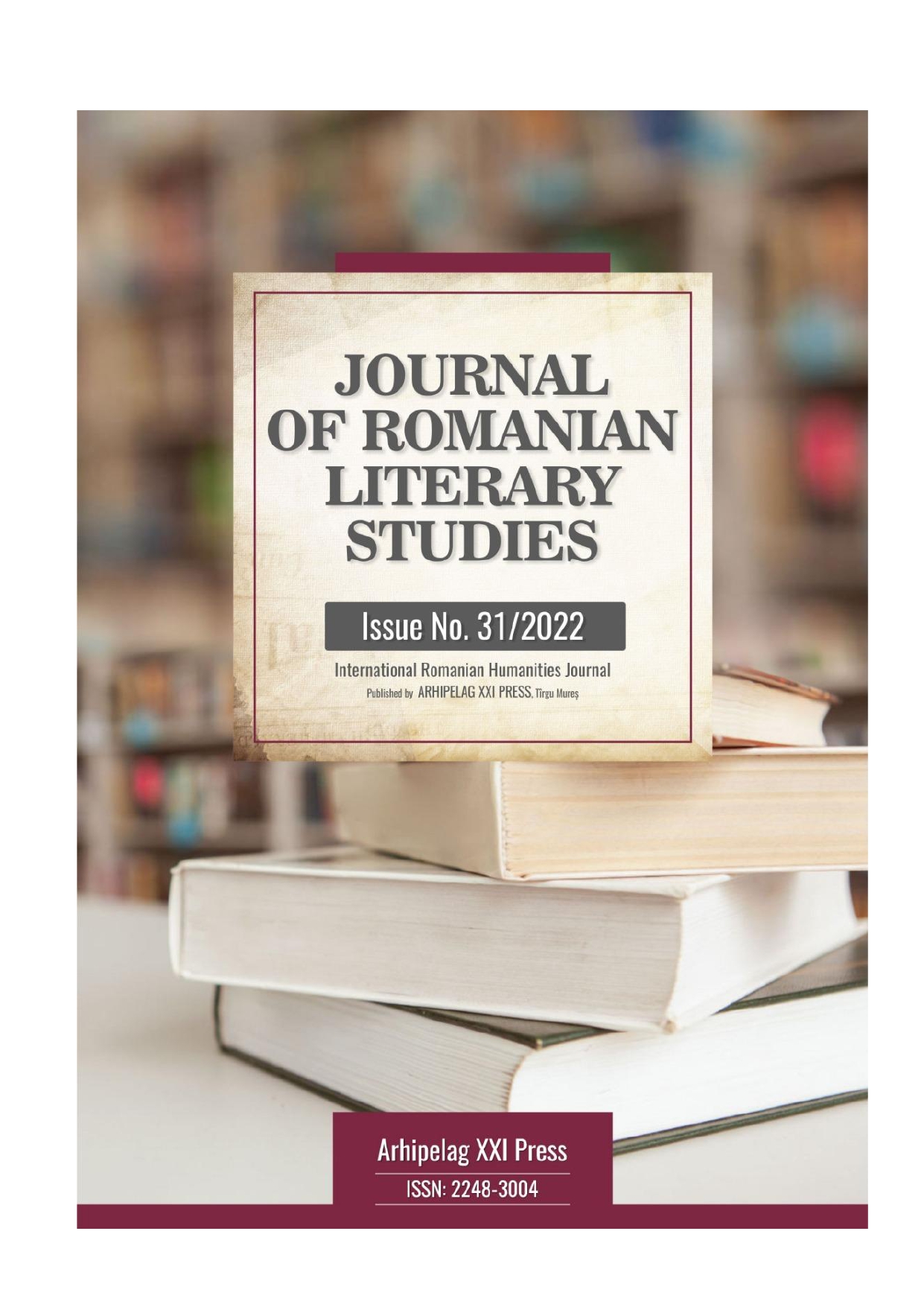
Thomas Mann's short stories from the beginning of the 20th century bring into discussion the problem of aestheticism, as was also emphasized by literary criticism, but also a certain perspective on a neoclassical ideal. The epic of small dimensions (the sketch, the story, the short story) characterizes the beginning of the 20th century, being focused on social observation, psychological analysis, symbolism and the fantastic. "No one remains unchanged after going through a process of self-knowledge", says Thomas Mann. Thus, in his writings he attempts a deepening, a highlighting of everything that self-knowledge means and produces.
More...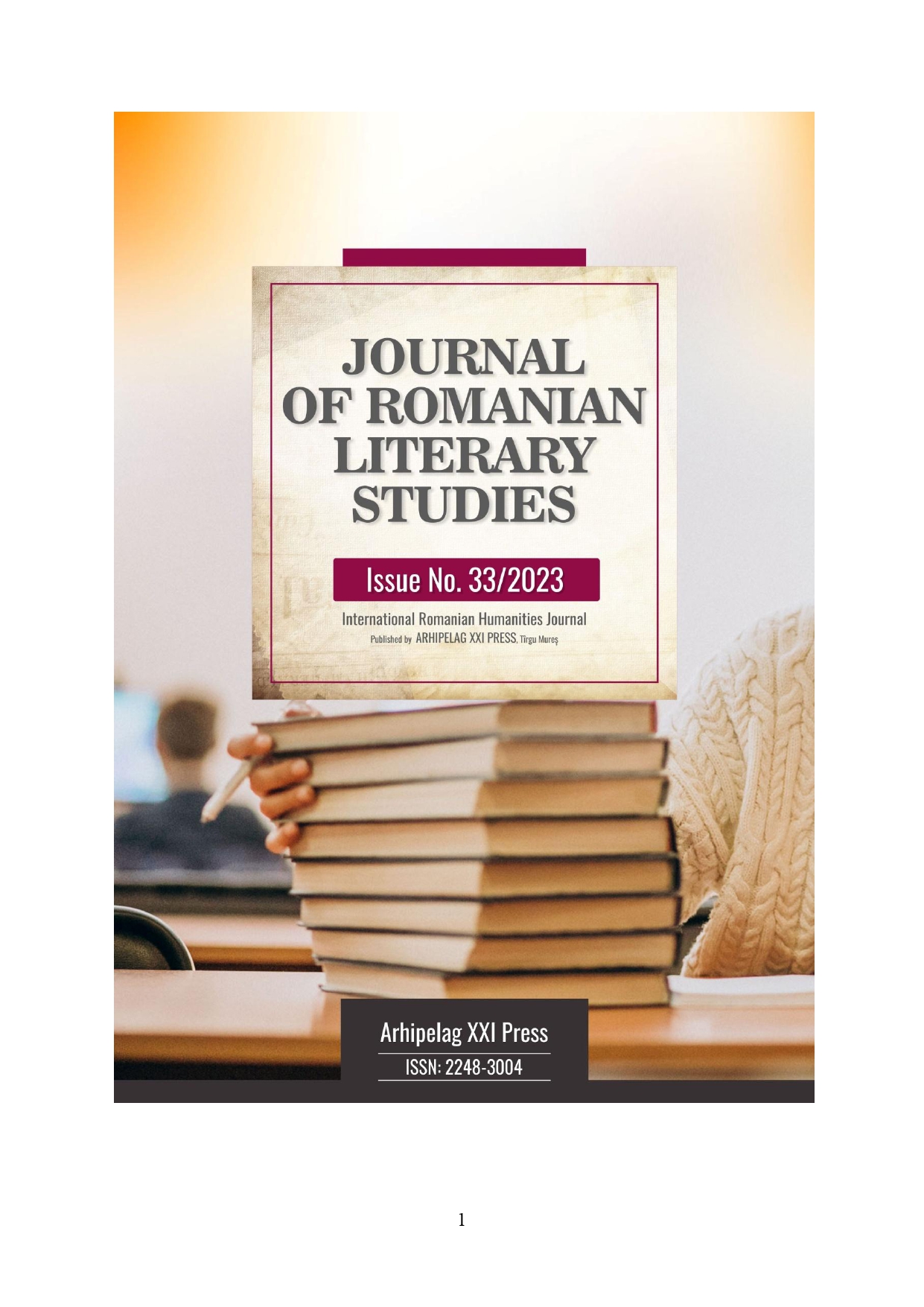
When talking about the author Alfred Gong, we must start from the Bukovina group, to which the author belonged. His birth in 1920 places him in the second generation of German-speaking Jewish authors from Bukovina, who were born not in the Habsburg monarchy but in the Kingdom of Great Romania. The Romanian socio-political environment brought the young Arthur Liquornik values as well as pain and suffering. On the one hand, he was taught the knowledge and depth of a folklore that he would later have wished to deepen in Romance studies at Chernivtsi University. On the other hand, Romanian politics meant recurrent persecution, which put him and his acquaintances in danger. Just as for Paul Celan, alienation, homelessness and attempts at refuge are not only literary motifs and themes for Alfred Gong, but also personal experiences. Alfred Gong experienced the exile and the feeling of horror before "tomorrow" several times and on several levels. This work attempts a twofold analysis. On the one hand, this work presents the exile experience of Alfred Gong. Second, it looks at European urban topoi to see to what extent these topoi can be seen as both cities of exile and places of transition. Bucharest, Budapest, Vienna, Lesum are the cities that compose a literary map of refuge and exile.
More...
Post-anthropocentric tools are needed to think about relations between humans and more-than-human others. In order to meet the challenges of the interspecific entanglements and interdependencies of a postmodern world, alternative models of collectivity must be designed from scratch with heterogeneous actors in mind. In Saša Stanišićʾs narrative Fallensteller [Trapper] and Olga Tokarczukʾs novel Drive Your Plow Over the Bones of the Dead, human and more-than-human protagonists engage in extraordinary relationships with each other. These are analyzed here based on Gesa Ziemer’s theoretical work on complicities as ‘multispecies complicities’. This new perspective on more-than-human collaborations aims to go beyond literary studies to explore multispecies collectives.
More...